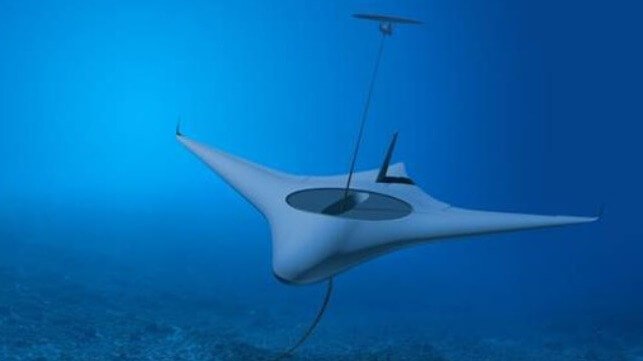DARPA, the U.S. Pentagon’s Defense Advanced Research Projects Agency, awarded phase 2 contracts to build and test concepts for unmanned underwater vehicles (UUVs) in a project code named Manta Ray. The program seeks to develop and demonstrate critical technologies for a new class of long duration, long-range, payload-capable UUVs.
The goal of the program, which was announced in 2020, seeks to develop UUVs that operate in ocean environments for extended durations without the need for on-site human logistics support or maintenance. Among the key technologies that DARPA said would be involved in the project are novel energy management techniques including energy harvesting at operational depths. The concept calls for low-power, high-efficiency undersea propulsion systems as well as new means of underwater detection of hazards and potential threats. They also expect to address and develop new approaches to mitigate biofouling, corrosion, and other material degradation that would affect long-duration missions.
In March 2020, four companies were selected to conduct Phase 1 of the program. They designed and conducted preliminary testing on key elements of the project. This included novel approaches in energy management, UUV reliability, biofouling and corrosion control, navigation, and undersea obstacle avoidance. The first phase of testing focused on areas that directly enable long-endurance missions.
“DARPA’s Manta Ray program has made significant breakthroughs toward enabling payload-capable autonomous underwater vehicles to operate independently of crewed vessels or support infrastructure,” said CDR Kyle Woerner, Manta Ray’s program manager. “Manta Ray is uniquely positioning itself to simultaneously introduce a new class of underwater vehicle while contributing key component technologies to other vital undersea programs.”
The Manta Ray program completed Phase 1 with critical design reviews that DARPA reports demonstrated design maturity and readiness for advancement for the project. In December, Phase 2 contracts were awarded to two prime contractors, Northrop Grumman Systems Corporation and Martin Defense Group.
During Phase2, the two projects will develop unique full-scale demonstration vehicles. The selected companies will work on subsystem testing followed by fabrication and in-water demonstrations of full-scale integrated vehicles.
Manta Ray is targeting three phases of development, culminating with a fully integrated demonstration vehicle completing an underwater mission in a dynamic, open-ocean environment.
Source: The Maritime Executive






